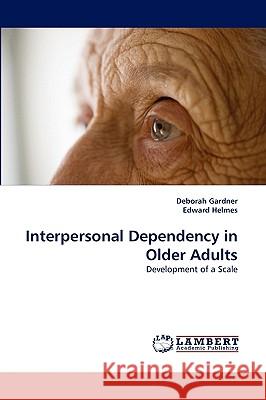topmenu
Wyniki wyszukiwania:
wyszukanych pozycji: 2
 |
Interpersonal Dependency in Older Adults
ISBN: 9783838384160 / Angielski / Miękka / 2010 / 136 str. Termin realizacji zamówienia: ok. 10-14 dni roboczych. Psychologists have contributed to the understanding of dependency in older age by describing and explaining the functionality of dependency across the life-span. Psychological research has also examined variables (such as the responses of carers to the dependent behaviours of older people) that exacerbate dependent feelings and behaviours (Baltes, 1996), but it has not included an individual difference measure of interpersonal dependency. According to Rosowsky, Dougherty, Johnson and Gurian (1997), an understanding of the ways that personality style affects older adults' engagement and...
Psychologists have contributed to the understanding of dependency in older age by describing and explaining the functionality of dependency across the...
|
cena:
263,91 |
 |
The Hotel Revenue Bible
ISBN: 9798989988907 / Angielski / Miękka / 2024 / 170 str. Termin realizacji zamówienia: ok. 16-18 dni roboczych. |
cena:
169,77 |










